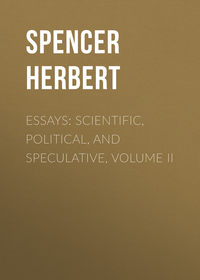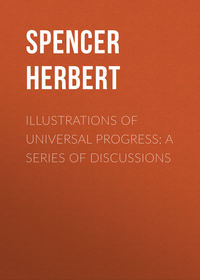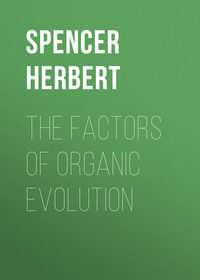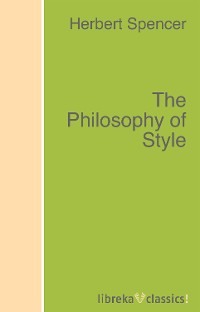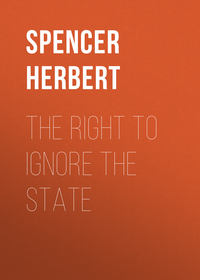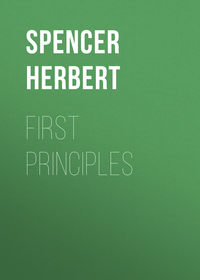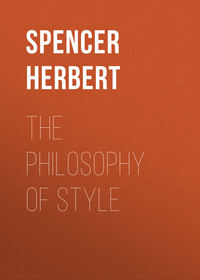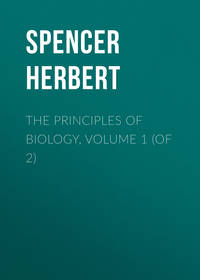 полная версия
полная версияThe Data of Ethics
§ 9. Is there any postulate involved in these judgments on conduct? Is there any assumption made in calling good the acts conducive to life, in self or others, and bad those which directly or indirectly tend toward death, special or general? Yes; an assumption of extreme significance has been made – an assumption underlying all moral estimates.
The question to be definitely raised and answered before entering on any ethical discussion, is the question of late much agitated: Is life worth living? Shall we take the pessimist view? or shall we take the optimist view? or shall we, after weighing pessimistic and optimistic arguments, conclude that the balance is in favor of a qualified optimism?
On the answer to this question depends entirely every decision concerning the goodness or badness of conduct. By those who think life is not a benefit but a misfortune, conduct which prolongs it is to be blamed rather than praised; the ending of an undesirable existence being the thing to be wished, that which causes the ending of it must be applauded; while actions furthering its continuance, either in self or others, must be reprobated. Those who, on the other hand, take an optimistic view, or who, if not pure optimists, yet hold that in life the good exceeds the evil, are committed to opposite estimates; and must regard as conduct to be approved that which fosters life in self and others, and as conduct to be disapproved that which injures or endangers life in self or others.
The ultimate question, therefore, is: Has evolution been a mistake; and especially that evolution which improves the adjustment of acts to ends in ascending stages of organization? If it is held that there had better not have been any animate existence at all, and that the sooner it comes to an end the better; then one set of conclusions with respect to conduct emerges. If, contrariwise, it is held that there is a balance in favor of animate existence, and if, still further, it is held that in the future this balance may be increased; then the opposite set of conclusions emerges. Even should it be alleged that the worth of life is not to be judged by its intrinsic character, but rather by its extrinsic sequences – by certain results to be anticipated when life has passed – the ultimate issue reappears in a new shape. For though the accompanying creed may negative a deliberate shortening of life that is miserable, it cannot justify a gratuitous lengthening of such life. Legislation conducive to increased longevity would, on the pessimistic view, remain blameable, while it would be praiseworthy on the optimistic view.
But now, have these irreconcilable opinions anything in common? Men being divisible into two schools differing on this ultimate question, the inquiry arises – Is there anything which their radically opposed views alike take for granted? In the optimistic proposition, tacitly made when using the words good and bad after the ordinary manner; and in the pessimistic proposition overtly made, which implies that the words good and bad should be used in the reverse senses; does examination disclose any joint proposition – any proposition which, contained in both of them, may be held more certain than either – any universally asserted proposition?
§ 10. Yes, there is one postulate in which pessimists and optimists agree. Both their arguments assume it to be self-evident that life is good or bad, according as it does, or does not, bring a surplus of agreeable feeling. The pessimist says he condemns life because it results in more pain than pleasure. The optimist defends life in the belief that it brings more pleasure than pain. Each makes the kind of sentiency which accompanies life the test. They agree that the justification for life as a state of being, turns on this issue – whether the average consciousness rises above indifference-point into pleasurable feeling or falls below it into painful feeling. The implication common to their antagonist views is, that conduct should conduce to preservation of the individual, of the family, and of the society, only supposing that life brings more happiness than misery.
Changing the venue cannot alter the verdict. If either the pessimist, while saying that the pains of life predominate, or the optimist, while saying that the pleasures predominate, urges that the pains borne here are to be compensated by pleasures received hereafter; and that so life, whether or not justified in its immediate results, is justified in its ultimate results; the implication remains the same. The decision is still reached by balancing pleasures against pains. Animate existence would be judged by both a curse, if to a surplus of misery borne here were added a surplus of misery to be borne hereafter. And for either to regard animate existence as a blessing, if here its pains were held to exceed its pleasures, he must hold that hereafter its pleasures will exceed its pains. Thus there is no escape from the admission that in calling good the conduct which subserves life, and bad the conduct which hinders or destroys it, and in so implying that life is a blessing and not a curse, we are inevitably asserting that conduct is good or bad according as its total effects are pleasurable or painful.
One theory only is imaginable in pursuance of which other interpretations of good and bad can be given. This theory is that men were created with the intention that they should be sources of misery to themselves; and that they are bound to continue living that their creator may have the satisfaction of contemplating their misery. Though this is not a theory avowedly entertained by many – though it is not formulated by any in this distinct way; yet not a few do accept it under a disguised form. Inferior creeds are pervaded by the belief that the sight of suffering is pleasing to the gods. Derived from bloodthirsty ancestors, such gods are naturally conceived as gratified by the infliction of pain: when living they delighted in torturing other beings; and witnessing torture is supposed still to give them delight. The implied conceptions long survive. It needs but to name Indian fakirs who hang on hooks, and Eastern dervishes who gash themselves, to show that in societies considerably advanced are still to be found many who think that submission to anguish brings divine favor. And without enlarging on facts and penances, it will be clear that there has existed, and still exists, among Christian peoples, the belief that the Deity whom Jephthah thought to propitiate by sacrificing his daughter, may be propitiated by self-inflicted pains. Further, the conception accompanying this, that acts pleasing to self are offensive to God, has survived along with it, and still widely prevails; if not in formulated dogmas, yet in beliefs that are manifestly operative.
Doubtless, in modern days such beliefs have assumed qualified forms. The satisfactions which ferocious gods were supposed to feel in contemplating tortures, has been, in large measure, transformed into the satisfaction felt by a deity in contemplating that self-infliction of pain which is held to further eventual happiness. But clearly those who entertain this modified view, are excluded from the class whose position we are here considering. Restricting ourselves to this class – supposing that from the savage who immolates victims to a cannibal god, there are descendants among the civilized, who hold that mankind were made for suffering, and that it is their duty to continue living in misery for the delight of their maker, we can only recognize the fact that devil-worshipers are not yet extinct.
Omitting people of this class, if there are any, as beyond or beneath argument, we find that all others avowedly or tacitly hold that the final justification for maintaining life can only be the reception from it of a surplus of pleasurable feeling over painful feeling; and that goodness or badness can be ascribed to acts which subserve life or hinder life only on this supposition.
And here we are brought round to those primary meanings of the words good and bad, which we passed over when considering their secondary meanings. For on remembering that we call good and bad the things which immediately produce agreeable and disagreeable sensations, and also the sensations themselves – a good wine, a good appetite, a bad smell, a bad headache – we see that by referring directly to pleasures and pains, these meanings harmonize with those which indirectly refer to pleasures and pains. If we call good the enjoyable state itself, as a good laugh – if we call good the proximate cause of an enjoyable state, as good music – if we call good any agent which conduces immediately or remotely to an enjoyable state, as a good shop, a good teacher – if we call good considered intrinsically, each act so adjusted to its end as to further self-preservation and that surplus of enjoyment which makes self-preservation desirable – if we call good every kind of conduct which aids the lives of others, and do this under the belief that life brings more happiness than misery; then it becomes undeniable that, taking into account immediate and remote effects on all persons, the good is universally the pleasurable.
§ 11. Sundry influences – moral, theological, and political – conspire to make people disguise from themselves this truth. As in narrower cases so in this widest case, they become so pre-occupied with the means by which an end is achieved, as eventually to mistake it for the end. Just as money, which is the means of satisfying wants, comes to be regarded by a miser as the sole thing to be worked for, leaving the wants unsatisfied; so the conduct men have found preferable because most conducive to happiness has come to be thought of as intrinsically preferable, not only to be made a proximate end (which it should be), but to be made an ultimate end, to the exclusion of the true ultimate end. And yet cross-examination quickly compels every one to confess the true ultimate end. Just as the miser, asked to justify himself, is obliged to allege the power of money to purchase desirable things, as his reason for prizing it; so the moralist who thinks this conduct intrinsically good and that intrinsically bad, if pushed home, has no choice but to fall back on their pleasure-giving and pain-giving effects. To prove this it needs but to observe how impossible it would be to think of them as we do, if their effects were reversed.
Suppose that gashes and bruises caused agreeable sensations, and brought in their train increased power of doing work and receiving enjoyment; should we regard assault in the same manner as at present? Or suppose that self-mutilation, say by cutting off a hand, was both intrinsically pleasant and furthered performance of the processes by which personal welfare and the welfare of dependents is achieved; should we hold as now, that deliberate injury to one's own body is to be reprobated? Or again, suppose that picking a man's pocket excited in him joyful emotions, by brightening his prospects; would theft be counted among crimes, as in existing law-books and moral codes? In these extreme cases, no one can deny that what we call the badness of actions is ascribed to them solely for the reason that they entail pain, immediate or remote, and would not be so ascribed did they entail pleasure.
If we examine our conceptions on their obverse side, this general fact forces itself on our attention with equal distinctness. Imagine that ministering to a sick person always increased the pains of illness. Imagine that an orphan's relatives who took charge of it, thereby necessarily brought miseries upon it. Imagine that liquidating another man's pecuniary claims on you redounded to his disadvantage. Imagine that crediting a man with noble behavior hindered his social welfare and consequent gratification. What should we say to these acts which now fall into the class we call praiseworthy? Should we not contrariwise class them as blameworthy?
Using, then, as our tests, these most pronounced forms of good and bad conduct, we find it unquestionable that our ideas of their goodness and badness really originate from our consciousness of the certainty or probability that they will produce pleasures or pains somewhere. And this truth is brought out with equal clearness by examining the standards of different moral schools; for analysis shows that every one of them derives its authority from this ultimate standard. Ethical systems are roughly distinguishable according as they take for their cardinal ideas (1) the character of the agent; (2) the nature of his motive; (3) the quality of his deeds; and (4) the results. Each of these may be characterized as good or bad; and those who do not estimate a mode of life by its effects on happiness, estimate it by the implied goodness or badness in the agent, in his motive, or in his deeds. We have perfection in the agent set up as a test by which conduct is to be judged. Apart from the agent we have his feeling considered as moral. And apart from the feeling we have his action considered as virtuous.
Though the distinctions thus indicated have so little definiteness that the words marking them are used interchangeably, yet there correspond to them doctrines partially unlike one another; which we may here conveniently examine separately, with the view of showing that all their tests of goodness are derivative.
§ 12. It is strange that a notion so abstract as that of perfection, or a certain ideal completeness of nature, should ever have been thought one from which a system of guidance can be evolved; as it was in a general way by Plato and more distinctly by Jonathan Edwardes. Perfection is synonymous with goodness in the highest degree; and, hence, to define good conduct in terms of perfection, is indirectly to define good conduct in terms of itself. Naturally, therefore, it happens that the notion of perfection like the notion of goodness can be framed only in relation to ends.
We allege imperfection of any inanimate thing, as a tool, if it lacks some part needful for effectual action, or if some part is so shaped as not to fulfill its purpose in the best manner. Perfection is alleged of a watch if it keeps exact time, however plain its case; and imperfection is alleged of it because of inaccurate time-keeping, however beautifully it is ornamented. Though we call things imperfect if we detect in them any injuries or flaws, even when these do not detract from efficiency; yet we do this because they imply that inferior workmanship, or that wear and tear, with which inefficiency is commonly joined in experience: absence of minor imperfections being habitually associated with absence of major imperfections.
As applied to living things, the word perfection has the same meaning. The idea of perfect shape in a race-horse is derived by generalization from those observed traits of race-horses which have usually gone along with attainment of the highest speed; and the idea of perfect constitution in a race-horse similarly refers to the endurance which enables him to continue that speed for the longest time. With men, physically considered, it is the same: we are able to furnish no other test of perfection than that of complete power in all the organs to fulfill their respective functions. That our conception of perfect balance among the internal parts, and of perfect proportion among the external parts, originates thus, is made clear by observing that imperfection of any viscus, as lungs, heart, or liver, is ascribed for no other reason than inability to meet in full the demands which the activities of the organism make on it; and on observing that the conception of insufficient size, or of too great size, in a limb, is derived from accumulated experiences respecting that ratio among the limbs which furthers in the highest degree the performance of all needful actions.
And of perfection in mental nature we have no other measure. If imperfection of memory, of judgment, of temper, is alleged, it is alleged because of inadequacy to the requirements of life; and to imagine a perfect balance of the intellectual powers and of the emotions, is to imagine that proportion among them which ensures an entire discharge of each and every obligation as the occasion calls for it.
So that the perfection of man considered as an agent, means the being constituted for effecting complete adjustment of acts to ends of every kind. And since, as shown above, the complete adjustment of acts to ends is that which both secures and constitutes the life that is most evolved, alike in breadth and length; while, as also shown, the justification for whatever increases life is the reception from life of more happiness than misery; it follows that conduciveness to happiness is the ultimate test of perfection in a man's nature. To be fully convinced of this it needs but to observe how the proposition looks when inverted. It needs but to suppose that every approach toward perfection involved greater misery to self, or others, or both, to show by opposition that approach to perfection really means approach to that which secures greater happiness.
§ 13. Pass we now from the view of those who make excellence of being the standard to the view of those who make virtuousness of action the standard. I do not here refer to moralists who, having decided empirically or rationally, inductively or deductively, that acts of certain kinds have the character we call virtuous, argue that such acts are to be performed without regard to proximate consequences: these have ample justification. But I refer to moralists who suppose themselves to have conceptions of virtue as an end, underived from any other end, who think that the idea of virtue is not resolvable into simpler ideas.
This is the doctrine which appears to have been entertained by Aristotle. I say, appears to have been, because his statements are far from consistent with one another. Recognizing happiness as the supreme end of human endeavor, it would at first sight seem that he cannot be taken as typical of those who make virtue the supreme end. Yet he puts himself in this category by seeking to define happiness in terms of virtue, instead of defining virtue in terms of happiness. The imperfect separation of words from things, which characterizes Greek speculation in general, seems to have been the cause of this. In primitive thought the name and the object named are associated in such wise that the one is regarded as a part of the other – so much so, that knowing a savage's name is considered by him as having some of his being, and a consequent power to work evil on him. This belief in a real connection between word and thing, continuing through lower stages of progress, and long surviving in the tacit assumption that the meanings of words are intrinsic, pervades the dialogues of Plato, and is traceable even in Aristotle. For otherwise it is not easy to see why he should have so incompletely disassociated the abstract idea of happiness from particular forms of happiness.
Naturally where the divorcing of words as symbols, from things as symbolized, is imperfect, there must be difficulty in giving to abstract words a sufficiently abstract meaning. If in the first stages of language the concrete name cannot be separated in thought from the concrete object it belongs to, it is inferable that in the course of forming successively higher grades of abstract names, there will have to be resisted the tendency to interpret each more abstract name in terms of some one class of the less abstract names it covers. Hence, I think, the fact that Aristotle supposes happiness to be associated with some one order of human activities, rather than with all orders of human activities. Instead of including in it the pleasurable feelings accompanying actions that constitute mere living, which actions he says man has in common with vegetables; and instead of making it include the mental states which the life of external perception yields, which he says man has in common with animals at large, he excludes these from his idea of happiness, and includes in it only the modes of consciousness accompanying rational life. Asserting that the proper work of man "consists in the active exercise of the mental capacities conformably to reason," he concludes that "the supreme good of man will consist in performing this work with excellence or virtue: herein he will obtain happiness." And he finds confirmation for his view in its correspondence with views previously enunciated; saying, "our notion nearly agrees with theirs who place happiness in virtue; for we say that it consists in the action of virtue; that is, not merely in the possession, but in the use."
Now the implied belief that virtue can be defined otherwise than in terms of happiness (for else the proposition is that happiness is to be obtained by actions conducive to happiness) is allied to the Platonic belief that there is an ideal or absolute good, which gives to particular and relative goods their property of goodness; and an argument analogous to that which Aristotle uses against Plato's conception of good, may be used against his own conception of virtue. As with good so with virtue – it is not singular but plural: in Aristotle's own classification, virtue, when treated of at large, is transformed into virtues. Those which he calls virtues must be so called in consequence of some common character that is either intrinsic or extrinsic. We may class things together either because they are made alike by all having in themselves some peculiarity, as we do vertebrate animals because they all have vertebral columns; or we may class them together because of some community in their outer relations, as when we group saws, knives, mallets, harrows, under the head of tools. Are the virtues classed as such because of some intrinsic community of nature? Then there must be identifiable a common trait in all the cardinal virtues which Aristotle specifies, "Courage, Temperance, Liberality, Magnanimity, Magnificence, Meekness, Amiability or Friendliness, Truthfulness, Justice." What now is the trait possessed in common by Magnificence and Meekness? and if any such common trait can be disentangled, is it that which also constitutes the essential trait in Truthfulness? The answer must be, No. The virtues, then, not being classed as such because of an intrinsic community of character, must be classed as such because of something extrinsic; and this something can be nothing else than the happiness which Aristotle says consists in the practice of them. They are united by their common relation to this result; while they are not united by their inner natures.
Perhaps still more clearly may the inference be drawn thus: If virtue is primordial and independent, no reason can be given why there should be any correspondence between virtuous conduct and conduct that is pleasure-giving in its total effects on self, or others, or both; and if there is not a necessary correspondence, it is conceivable that the conduct classed as virtuous should be pain-giving in its total effects. That we may see the consequence of so conceiving it, let us take the two virtues considered as typically such in ancient times and in modern times – courage and chastity. By the hypothesis, then, courage, displayed alike in self-defence and in defence of country, is to be conceived as not only entailing pains incidentally, but as being necessarily a cause of misery to the individual and to the state; while, by implication, the absence of it redounds to personal and general well-being. Similarly, by the hypothesis, we have to conceive that irregular sexual relations are directly and indirectly beneficial – that adultery is conducive to domestic harmony and the careful rearing of children; while marital relations, in proportion as they are persistent, generate discord between husband and wife and entail on their offspring, suffering, disease and death. Unless it is asserted that courage and chastity could still be thought of as virtues though thus productive of misery, it must be admitted that the conception of virtue cannot be separated from the conception of happiness-producing conduct; and that as this holds of all the virtues, however otherwise unlike, it is from their conduciveness to happiness that they come to be classed as virtues.
§ 14. When from those ethical estimates which take perfection of nature, or virtuousness of action, as tests, we pass to those which take for test rectitude of motive, we approach the intuitional theory of morals; and we may conveniently deal with such estimates by a criticism on this theory.
By the intuitional theory I here mean, not that which recognizes as produced by the inherited effects of continued experiences, the feelings of liking and aversion we have to acts of certain kinds; but I mean the theory which regards such feelings as divinely given, and as independent of results experienced by self or ancestors. "There is, therefore," says Hutcheson, "as each one by close attention and reflection may convince himself, a natural and immediate determination to approve certain affections and actions consequent upon them;" and since, in common with others of his time, he believes in the special creation of man, and all other beings, this "natural sense of immediate excellence" he considers as a supernaturally derived guide. Though he says that the feelings and acts thus intuitively recognized as good, "all agree in one general character, of tending to the happiness of others;" yet he is obliged to conceive this as a pre-ordained correspondence. Nevertheless, it may be shown that conduciveness to happiness, here represented as an incidental trait of the acts which receive these innate moral approvals, is really the test by which these approvals are recognized as moral. The intuitionists place confidence in these verdicts of conscience simply because they vaguely, if not distinctly, perceive them to be consonant with the disclosures of that ultimate test. Observe the proof.


